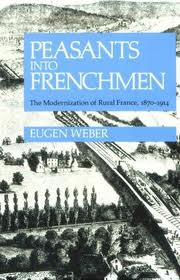I am teaching my Law, Economics, and Organization class this semester. The class is for upper-level undergraduates and graduate students, so there is a good variety of backgrounds and interests among the students who enroll in it.
Since the class is a seminar, I spend about half the time teaching, with the other half spent discussing specific papers.
Last Friday, in the context of the module on relational contracts, we discussed two classic papers. The first is Greif’s (1993) paper, in which he discusses the various mechanisms used by 11th-century Jewish merchants around the Mediterranean to sustain long-distance trade. The second is Bernstein’s (1992) investigation of how diamond traders choose to “opt out” of the legal system by developing their own extra-legal institutions.
Hustle and Flow
In the spirit of both articles, I wanted to link to a somewhat dated article in Wired, a Q&A with Robert Neuwirth, who published a book titled Stealth of Nations: The Global Rise of the Informal Economy last fall. Here is an excerpt:

